University Essay: The Pursuit of Happiness and Societal Distractions
VerifiedAdded on 2020/05/04
|6
|716
|196
Essay
AI Summary
This essay delves into the complexities of the pursuit of happiness, examining how modern societal distractions, particularly those related to technology and social media, have altered our understanding and experience of happiness. The essay analyzes the impact of these distractions on empathy and civic engagement, arguing that the constant engagement with electronic gadgets and virtual interactions diminishes face-to-face connections and genuine human interaction, thereby reducing the ability to connect with others and diminishing the quality of life. The essay references the work of Jeffrey Kluger to support the arguments, illustrating the ways in which social media usage often presents an idealized version of happiness, contrasting it with the reality of diminished social activities and genuine interaction. The author concludes that limiting the use of electronic devices and prioritizing real-life interactions are essential steps to fostering true happiness and enhancing the quality of life.
1 out of 6
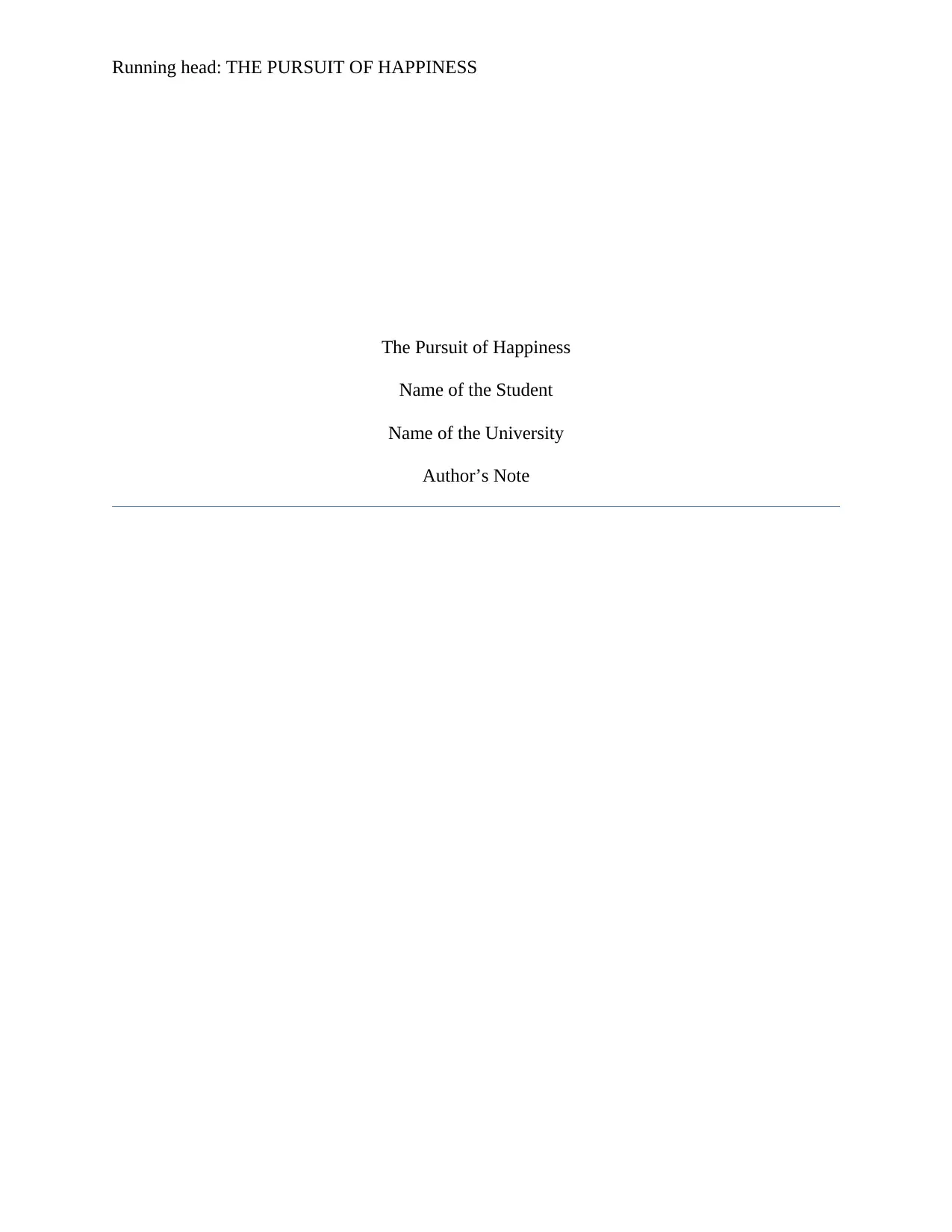
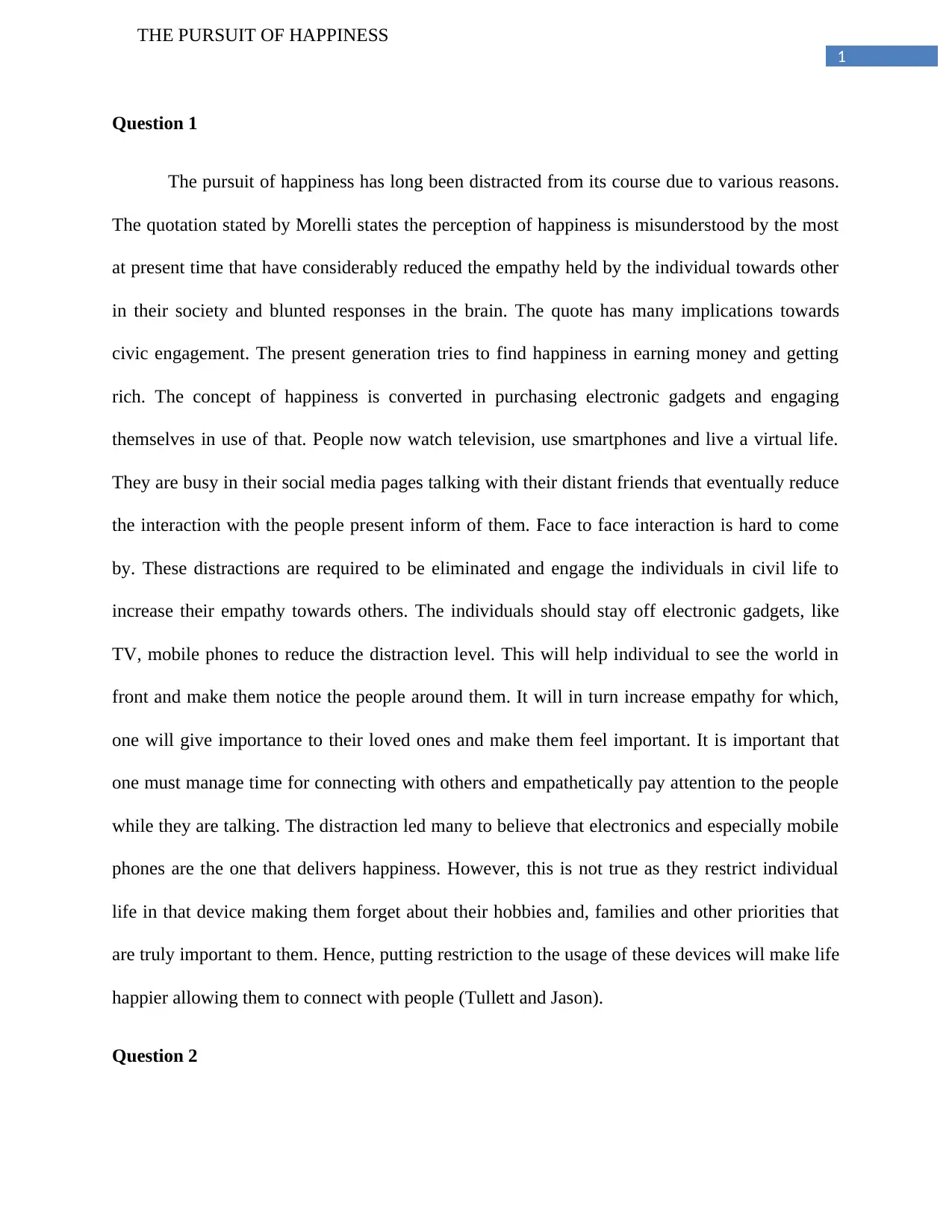
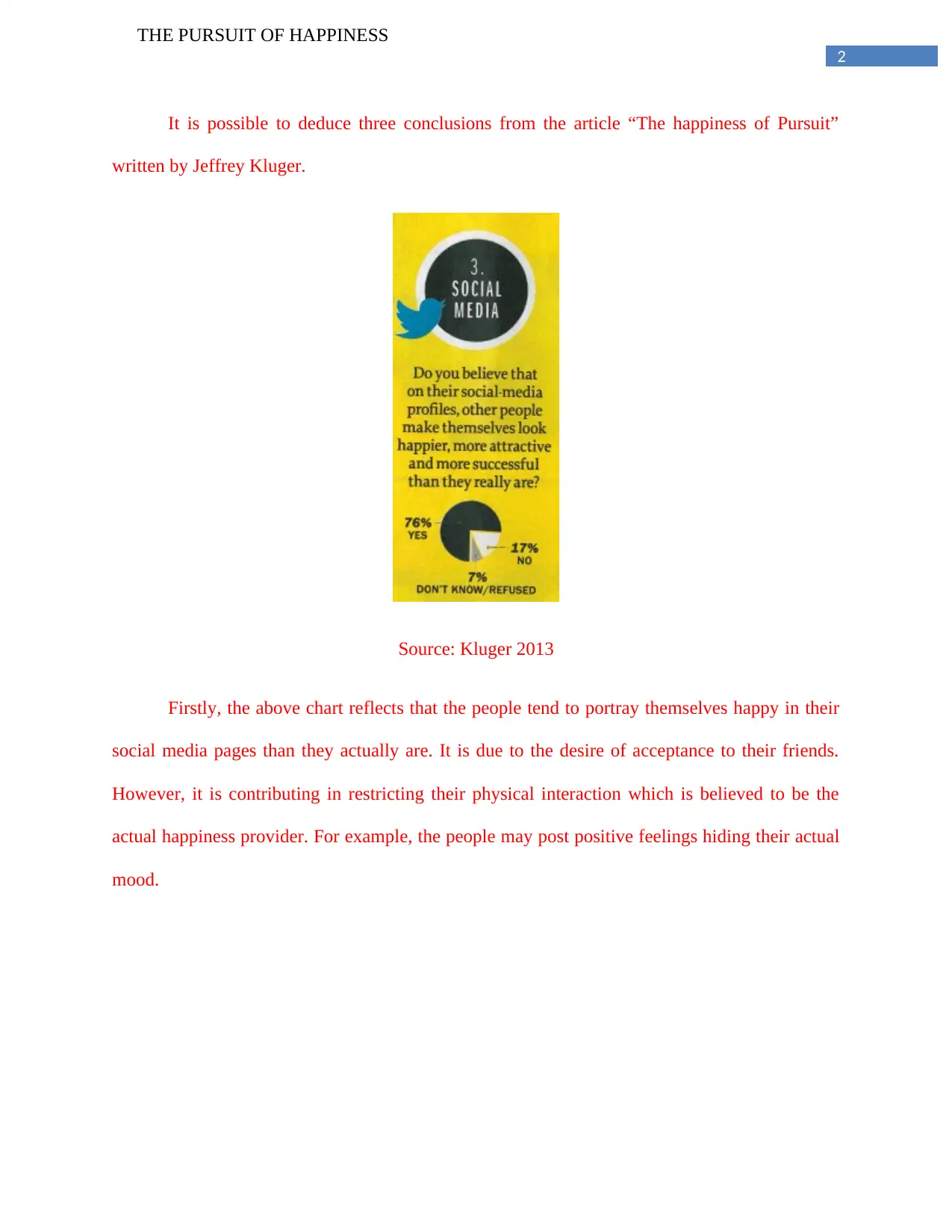

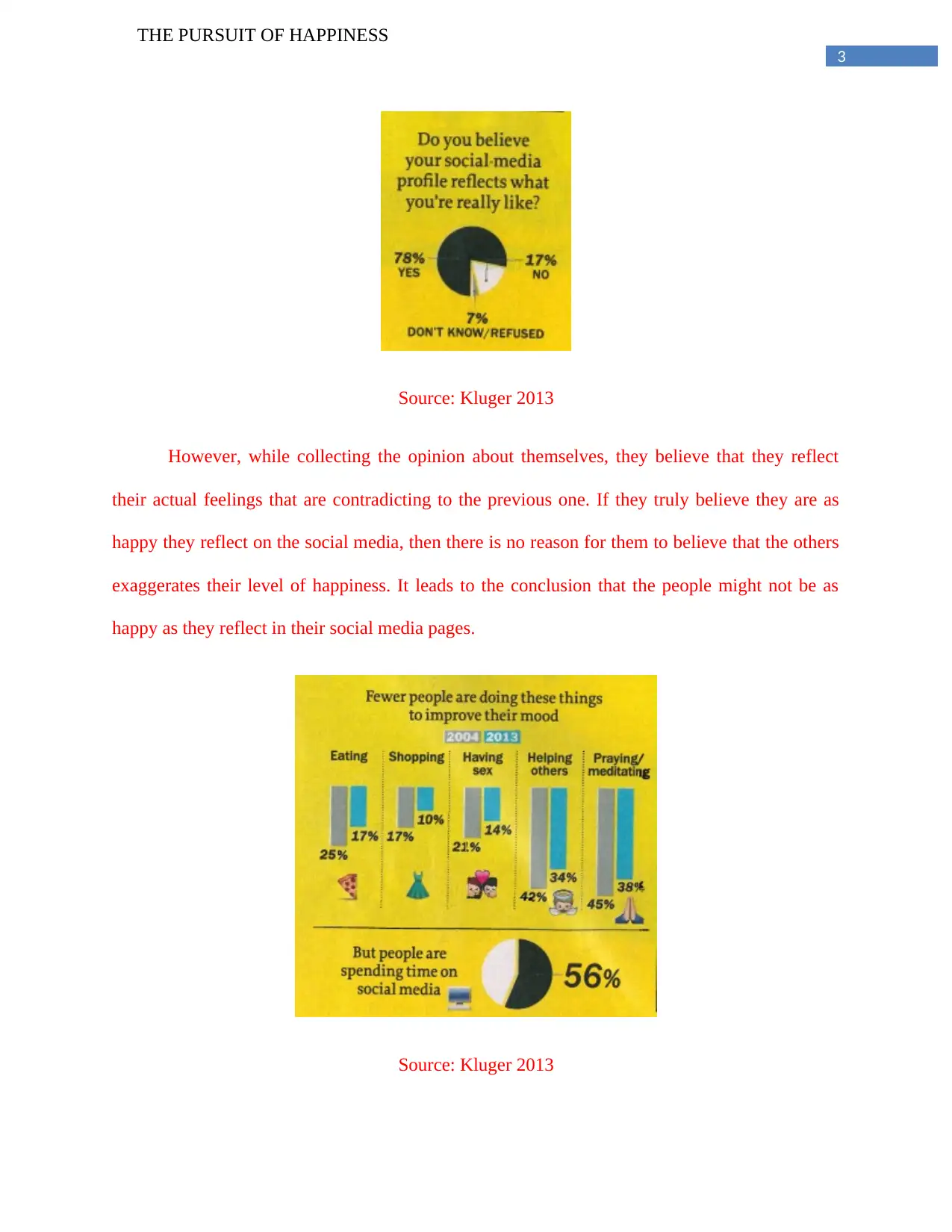
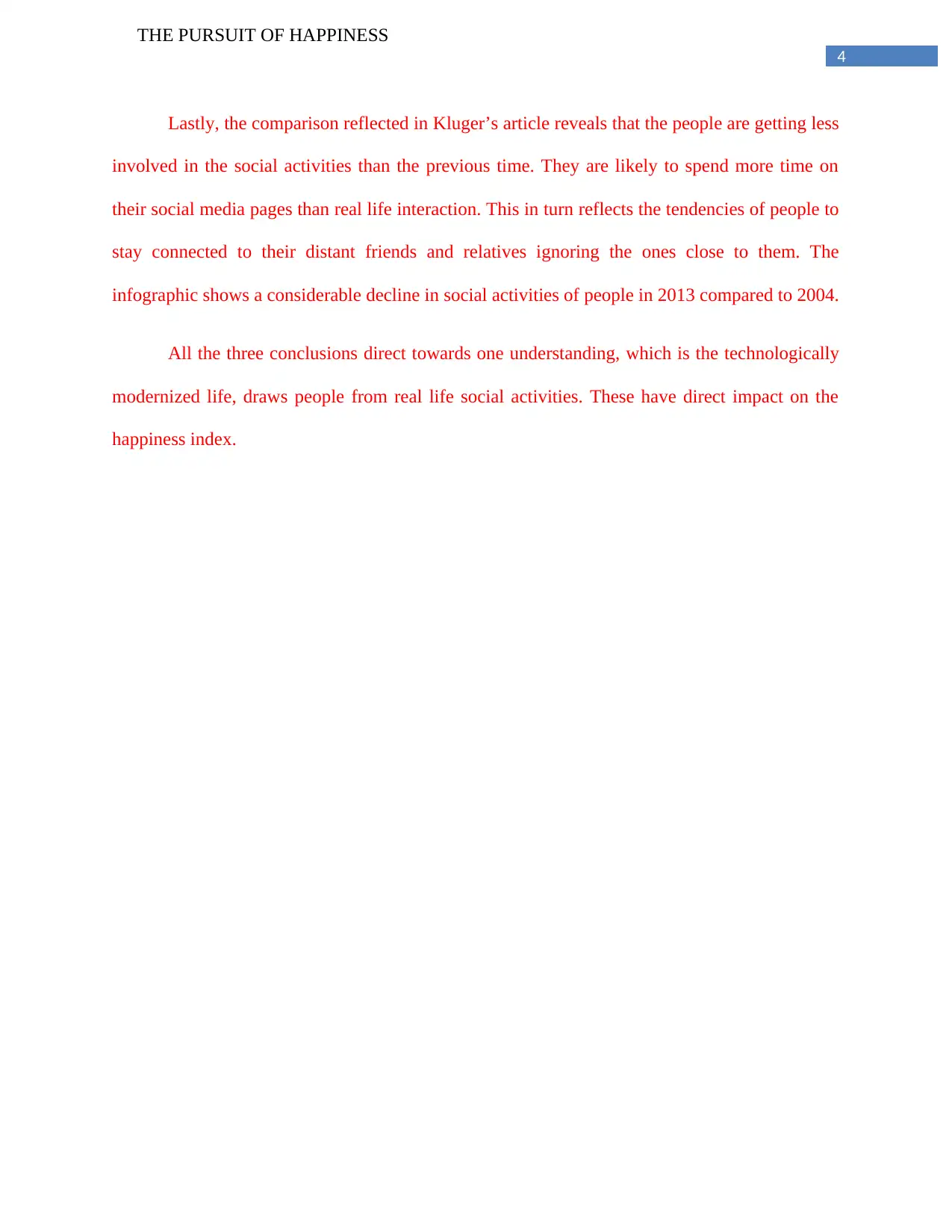
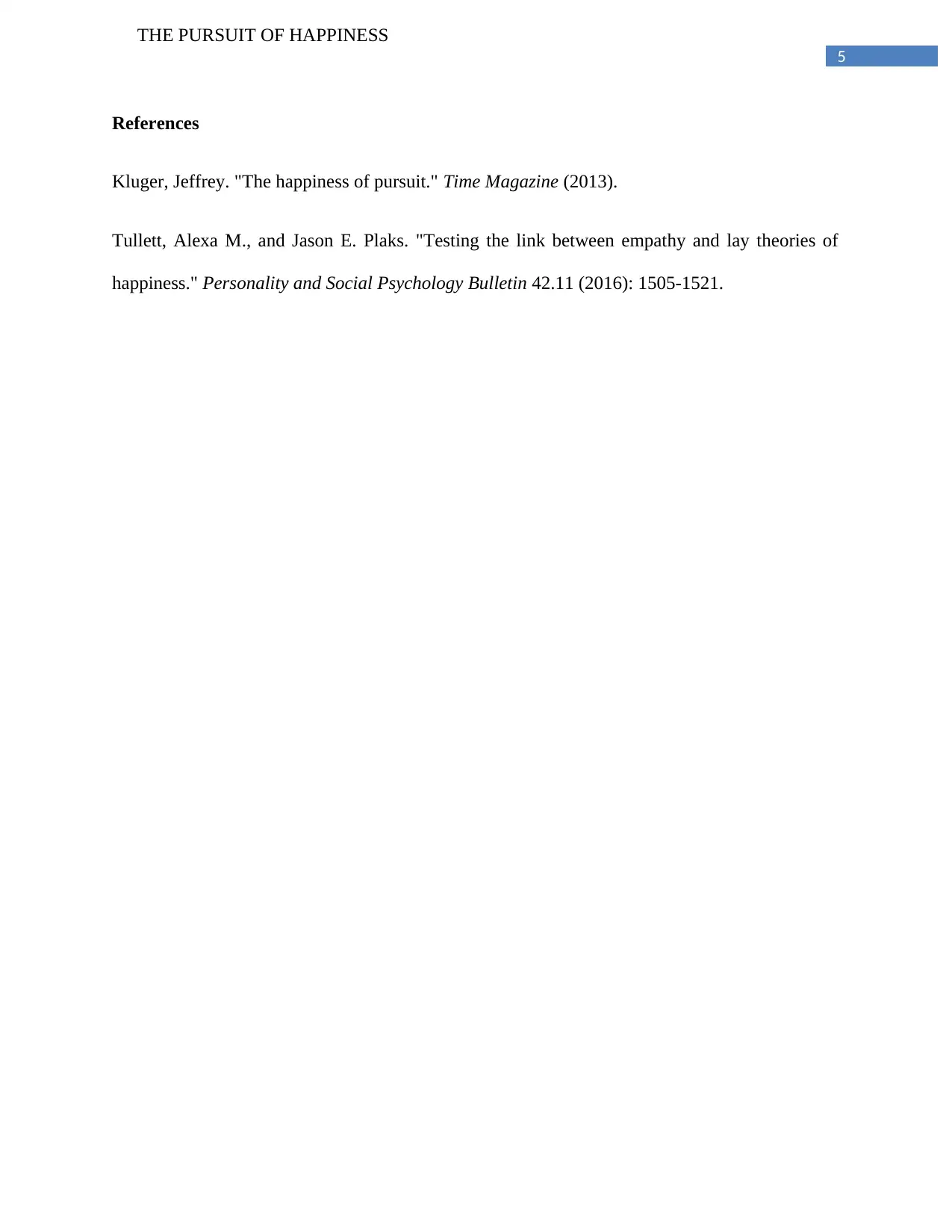






![[object Object]](/_next/static/media/star-bottom.7253800d.svg)